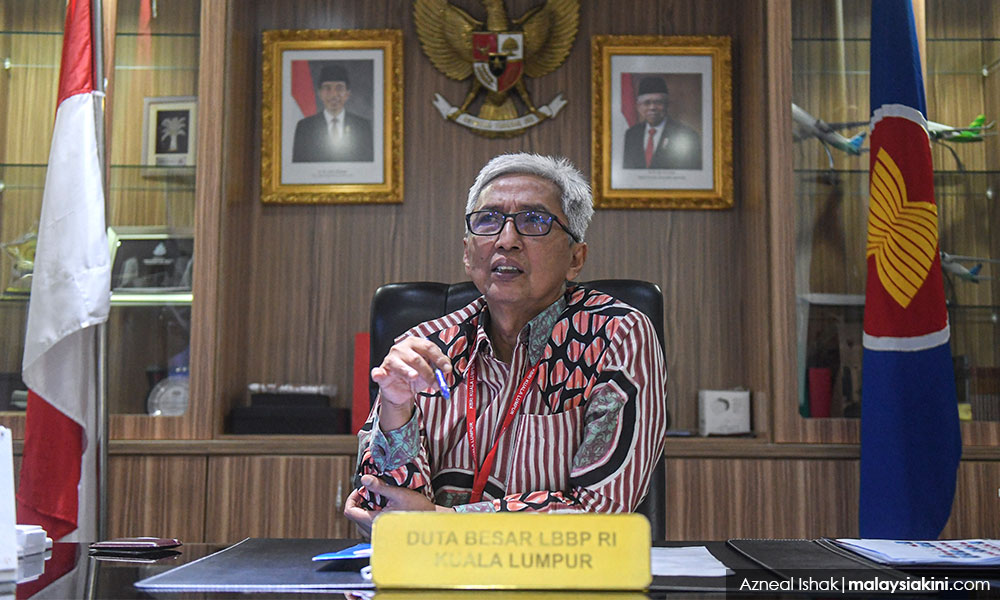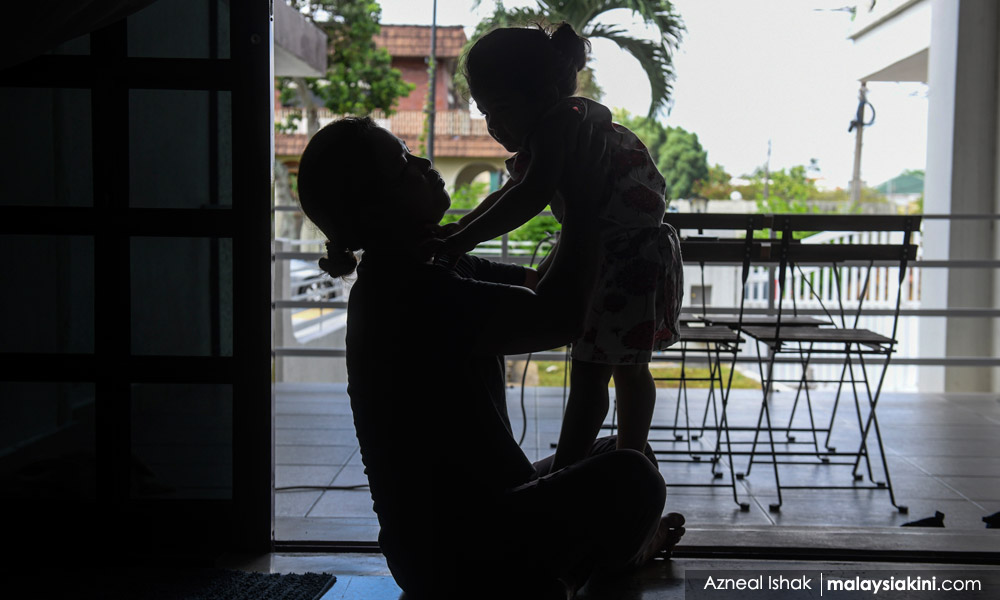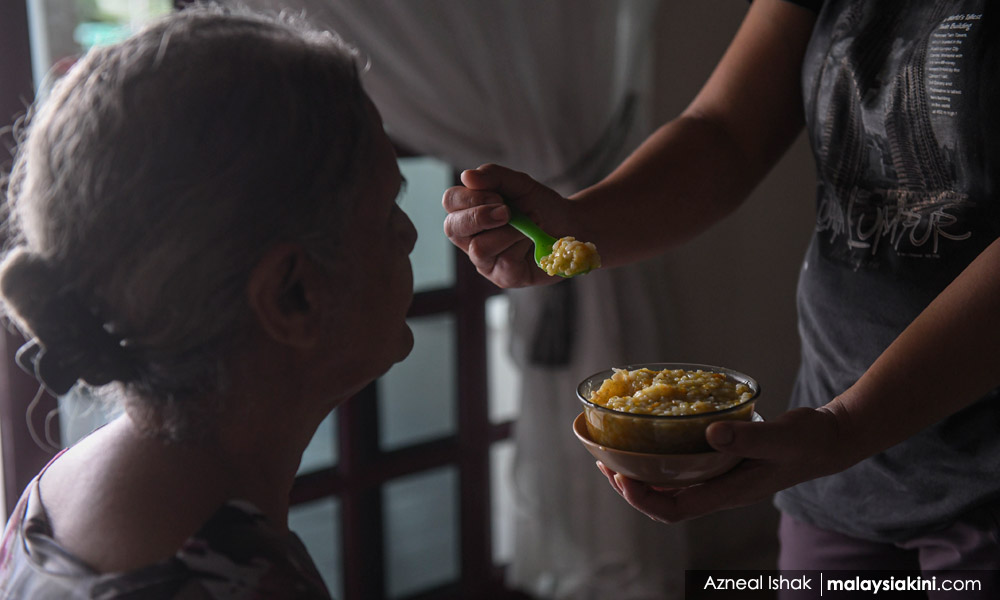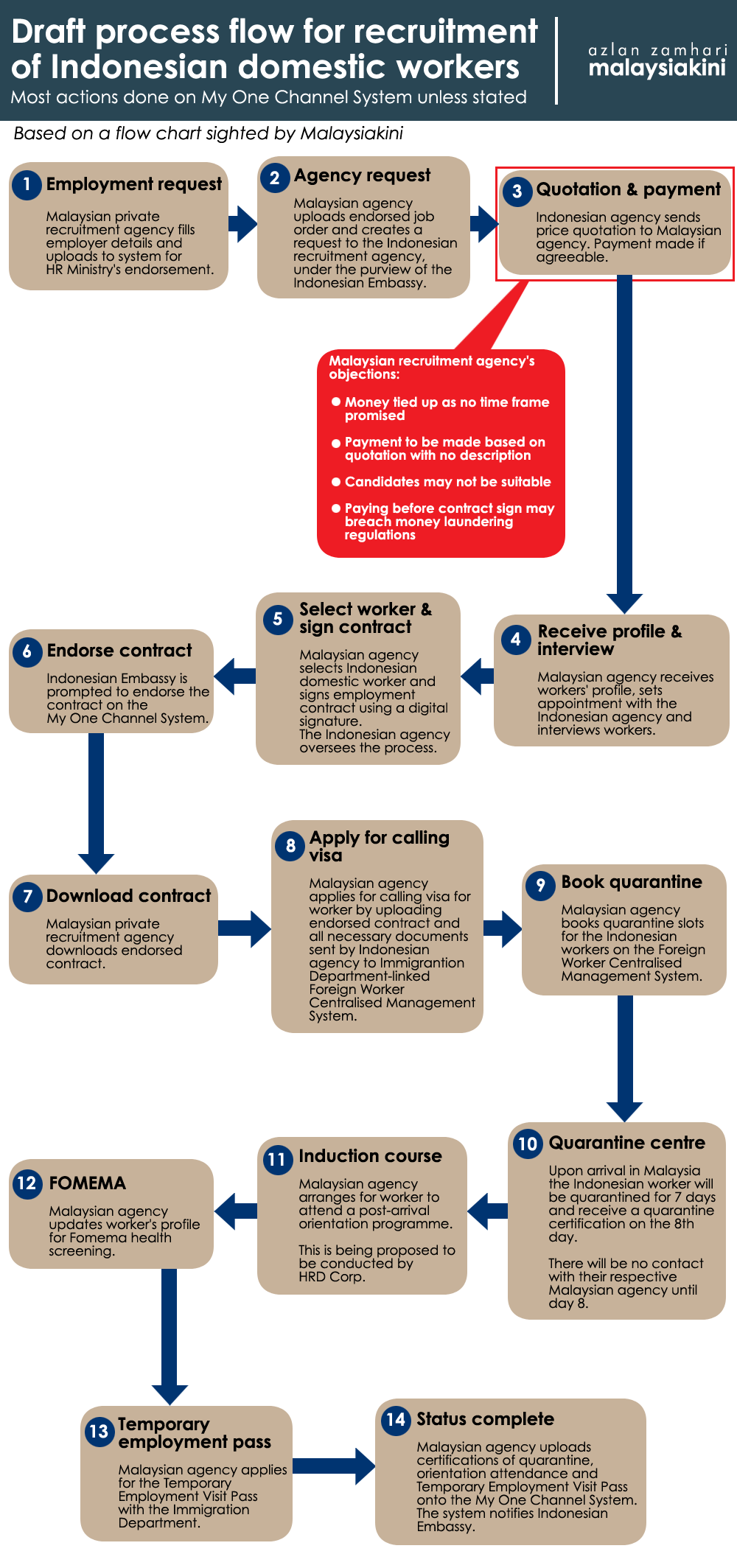Indonesia will focus on sending its citizens to work in Malaysia’s formal sector and phase out domestic workers who were more vulnerable to abuse and forced labour, said its envoy here.
Indonesian ambassador to Malaysia, Hermono said his country was not interested in sending large numbers of domestic workers to work in countries where labour abuses frequently went unpunished.
The memorandum of understanding (MOU) signed on April 1 by the two countries and sighted by Malaysiakini did not indicate an expiration date or enforceable duration.
However, Hermono said, “We are going to gradually phase out Indonesians working as domestic workers anywhere in the world.
"This was part of our national migrant worker policy which aimed to achieve zero domestic workers by 2017 but that objective was not achieved.
"We will phase them out in countries where our workers faced the most rights abuses first.
"For example, we imposed a moratorium on our domestic workers seeking work in 18 Middle Eastern countries in 2015," he explained.

Malaysia's treatment of its migrant workforce is already under international scrutiny.
With the inking of the MOU on the 'Employment and Protection of Indonesian Domestic Workers in Malaysia', Malaysia's commitment to enforcing the provisions therein will be tested.
However, Hermono said the inking of the MOU earlier this month was a landmark event in the relationship between Indonesia and Malaysia as the leaders from both countries were present to witness it.
"This reflected Malaysia's seriousness and commitment to the MOU," he said.
He said the memorandum would serve as a benchmark for bilateral agreements Indonesia would undertake with other countries interested in hiring their domestic workers.
"They are Kuwait, Saudi Arabia, the United Arab Emirates and Brunei.
"We are committed to ensuring that an MOU was in place in countries whose local laws do not sufficiently safeguard the rights of domestic workers.
"And the Malaysia-Indonesia MOU is by far the most progressive domestic worker rights document we have successfully undertaken with another country," he added.

Hermono added that the MOU covered an extensive range of safeguard measures designed to protect workers and employers.
On April 7, Malaysiakini revealed that Indonesian domestic workers' wages would be no less than RM1,500 and continued non-payment of wages entitled workers to terminate their contracts.
In a reaction to this, employers represented by Malaysian Maid Employers Association's (Mama) president Engku Ahmad Fauzi Engku Muhsein lamented that many would not be able to afford this and may start looking at cheaper alternatives.
MOU sets new bar
Yesterday, Malaysiakini reported that the Indonesian Embassy had set the minimum monthly household income for employers to qualify for an Indonesian domestic worker at RM7,000.
The MOU also streamlines tasks usually loaded onto a single worker under three separate job titles - housekeeper and family cook, child caregiver, and elderly person caregiver.
Hermono explained that there needed to be a change in Malaysians' perception that Indonesian domestic workers were cheap, easy to cheat and stay quiet when wages were not paid and easy to bully.
"We are setting a new bar, and it is high. If employers find the provisions in the MOU unreasonable or the wages too high, they can hire their domestic workers from other countries.
"If they disagree with the new standards that we have set but hire them anyway and do not pay their wages, then they are cruel with no value for humanity," he reasoned.

Abuses must end
Hermono said during negotiations, Indonesia had asked for all the common abuse and forced labour elements faced by Indonesian domestic workers to be addressed in the MOU.
"Migrant domestic workers in Malaysia faced unpaid salaries, worked long hours with no rest, wages were withheld for years, sometimes even up to 10 to 15 years.
"The provisions in the MOU reflect decent work guidelines and the International Labour Organisation's standards.
Hermono pointed out that the One-Channel-System protected employers as well as workers but understood that the provisions were new to Malaysian employers.
"The memorandum did not indicate that Indonesia was asking too much from employers, but it was protecting employers' and workers' rights.
"But we cannot allow our workers to be enslaved in another country." - Mkini





No comments:
Post a Comment
Note: Only a member of this blog may post a comment.